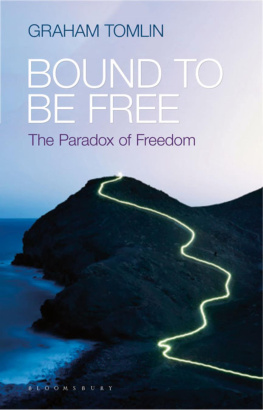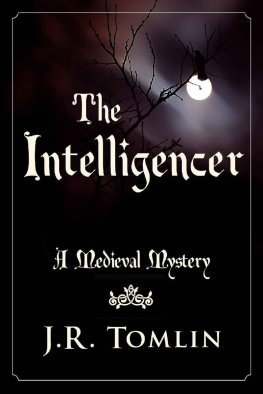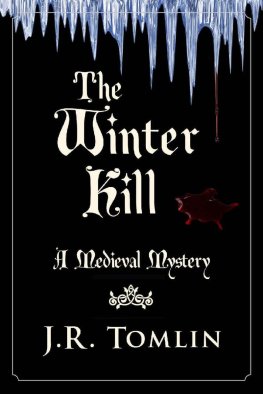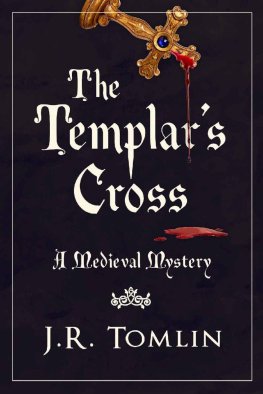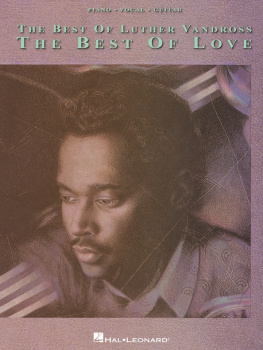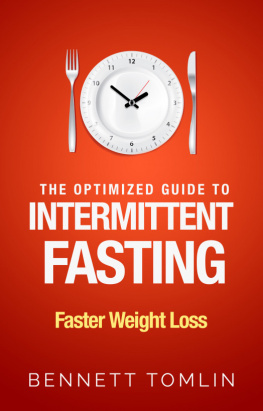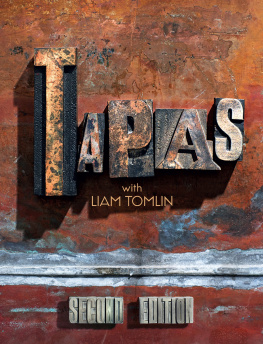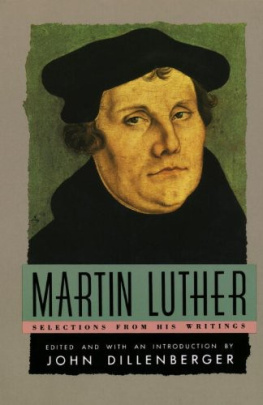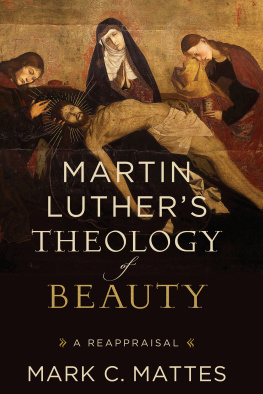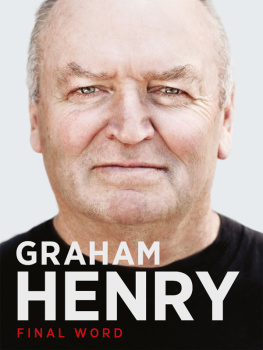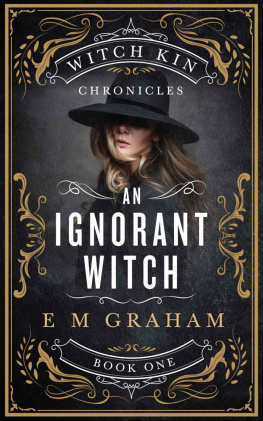Copyright 2002 Graham Tomlin
This edition copyright 2012 Lion Hudson
The right of Graham Tomlin to be identified
as the author of this work has been asserted
by him in accordance with the Copyright,
Designs and Patents Act 1988.
All rights reserved. No part of this publication
may be reproduced or transmitted in any form
or by any means, electronic or mechanical,
including photocopy, recording, or any
information storage and retrieval system,
without permission in writing from the
publisher.
Published by Lion Books
an imprint of
Lion Hudson plc
Wilkinson House, Jordan Hill Road,
Oxford OX2 8DR, England
www.lionhudson.com/lion
ISBN 978 0 7459 5588 9
e-ISBN 978 0 7459 5707 4
First edition 2002
This edition 2012
Acknowledgments
Scripture quotations are from The Revised
Standard Version of the Bible copyright 1346,
1952 and 1971 by the Division of Christian
Education of the National Council of
Churches in the USA. Used by permission.
A catalogue record for this book is available
from the British Library
Cover images
Aged paper: Kim Sohee/iStock
Martin Luther at Worms: Ivy Close Images/
Alamy
Introduction
By any account, Martin Luther must rank as one of the most influential European figures of the last millennium. Marco Polo and Columbus opened up new continents, Shakespeare and Michelangelo produced some of the most sublime pieces of art, and Napoleon and Hitler changed the political face of their centuries. Yet Luther and the Reformation he triggered have made a huge impact not just on Europe, but also on North America, Australia and by means of the Protestant missionary movement throughout the rest of the world. Protestantism shaped a whole new way of life for countless people across the Western world and beyond, which coloured their approaches to God, work, politics, leisure, family in fact, almost every aspect of human life. It played a seminal role in the early development and continuing self-image of the United States, and in the emergence of democracy and economic and religious freedoms in Europe.
To people of all nationalities the first Protestants bequeathed in spite of themselves a heritage of spiritual freedom and equality, the consequences of which are still working themselves out in the world today.
Stephen Ozment, Protestants , 1992
Protestantism was one of the key movements ushering in changes from the medieval to the modern world. Luther cannot claim credit nor can he be blamed for the whole of what eventually became Protestantism, but as one who played a critical role in the emergence of a new church and a new way of life for millions of people, the influence of his actions and beliefs on the past 500 years has been incalculable. The modern world can barely be understood without them.
Yet who was Luther? During the 500 years since he lived, Martin Luther has been seen as just about everything: from an infallible teacher of the truth (17th-century Lutheran orthodoxy), to the supreme example of rationalist individualism (the Enlightenment), to the man chiefly responsible for the German churches near total failure to oppose the rise of the Nazis in 1930s Germany. Alongside this, the Roman Catholic judgment has changed from seeing Luther as the arch-heretic who fatally split a united European Christendom, to a much more sympathetic understanding, almost claiming him as one of their own in recent years.
This book, naturally, paints its own portrait of Luther. It paints a picture of a man struggling with some of the deepest of all human questions if there is a God, is he good? Can he be trusted? What or who is the power that lies behind the universe? Luther battled with these questions in a profound and sometimes agonizing way from very early in his life. He tried the various contemporary solutions on offer, including the monastic and the academic life, before stumbling upon an answer which stilled his fears and satisfied the deepest yearnings of his soul. In the process, the church in Europe, already going through a period of great upheaval, experienced dramatic change and deep division. Luther was one part of a large and complex story, but he remains a key figure in the development of the modern world. In recent years, the emphasis among historians has been to view the Reformation as an economic or sociological phenomenon, and to concentrate not so much on the big names of the movement, but rather on exploring how it affected ordinary people in Germany, Switzerland and beyond. These approaches have yielded some invaluable results and have helped people to understand the movement far better than ever before. Nonetheless, the Reformation was still, however, a movement sparked off by particular people writing particular ideas, which then had an effect far wider and greater than they could have envisaged. And Luther, as perhaps the chief of these people, deserves study even now.
This book tries to present an accessible and attractive modern introduction to Luthers life, ideas and significance for today, in which recent scholarly research on Luther is implicit but not intrusive. The authors hope is that it will stimulate readers to read Luther for themselves. Many medieval and Renaissance writers are pretty turgid and tedious to read. Luther is neither of these things. A facility with language, a colourful imagination and a blunt Saxon frankness all combine to make his writing hold attention, even when tackling obscure aspects of late-medieval theology. Luther is rarely dull. At the end of this book, a list of suggestions for further reading points the way for those who want to explore his significance a little further.
CHAPTER 1
The Friar
Eisleben was a mining town. Even today the surrounding landscape is punctuated with dark conical slag heaps, the unmistakable scars of excavation. It was never the prettiest of places, but it was at least prosperous, and as the 15th century drew towards its close, it was already attracting many expectant prospectors from further afield in Thuringia and beyond. Among the hopeful new arrivals was Hans Luder. He had come from the village of Mhra but, as his younger brother had inherited the family farmland on his fathers death, according to the local custom on inheritance, Hans had to find some other way of making a living. Having worked in the mines of Mhra for a few years, he wanted to move into mine management or ownership. Eisleben seemed a good bet, being a thriving centre of copper extraction. So, in the early summer of 1483, he moved to the town with his pregnant wife, Margarethe, renting lodgings whilst he tried his luck in the business of mining.
Margarethe Luder finally produced her second child on 10 November that year. A day later, the baby boy was taken to St Peters and St Pauls, the nearest church, just a few yards away from the house, where he was duly baptized. He was given the name of the saint whose day it was: Martin. Eisleben did not prove a successful venture for Hans Luder. Competition was fierce, and he was only one among many trying to forge a living out of copper. Within another year, he had moved on, this time to Mansfeld. Here, he managed to borrow money from some wealthy merchants. He leased a smelting works from the counts of Mansfeld, and gained part ownership in a number of mines. Even though it took him many years to pay off his loans and meanwhile the family had to live frugally and carefully Hans was upwardly mobile, ambitious and determined.




